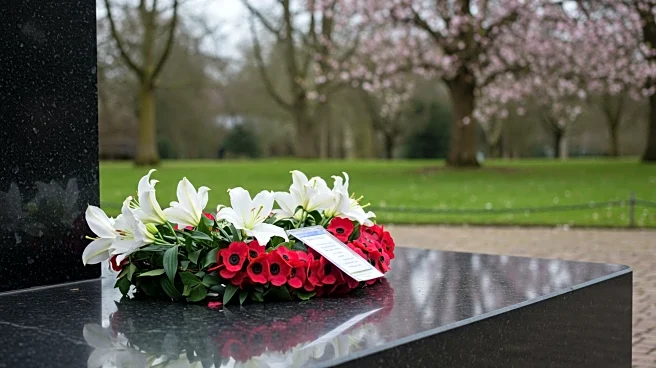What's Happening?
Japan commemorated the 80th anniversary of its World War II surrender on August 15, 2025. Prime Minister Shigeru Ishiba expressed 'remorse' during the national memorial service for war casualties held at Nippon Budokan in Tokyo. This marked the first time since 2012 that a Japanese prime minister used the term 'remorse' in an August 15 speech. Ishiba emphasized the importance of remembering the horrors of war and ensuring that Japan does not repeat past mistakes. The event also included visits to the Yasukuni Shrine by Japan's agriculture minister Shinjiro Koizumi, which has been a point of contention with Japan's Asian neighbors due to its association with wartime aggression.
Why It's Important?
The use of the term 'remorse' by Prime Minister Ishiba is significant as it reflects Japan's ongoing efforts to reconcile with its wartime past and address regional tensions. The memorial service and Ishiba's speech may influence Japan's diplomatic relations, particularly with countries that suffered under Japanese militarism during World War II. The event underscores the importance of historical memory in shaping national identity and foreign policy. It also highlights the challenges Japan faces in balancing domestic sentiments with international expectations regarding its wartime history.
What's Next?
Japan may continue to face diplomatic challenges with its neighbors, particularly China and South Korea, who have historically criticized visits to the Yasukuni Shrine. The government might engage in further diplomatic efforts to address these tensions and promote regional stability. Additionally, Japan's approach to historical memory and reconciliation could influence its future foreign policy and international relations.
Beyond the Headlines
The anniversary highlights broader issues of historical memory and reconciliation in Japan. It raises questions about how nations confront and learn from their past, and the role of public memory in shaping national identity. The event may also prompt discussions on the ethical responsibilities of nations to acknowledge and address historical injustices.










